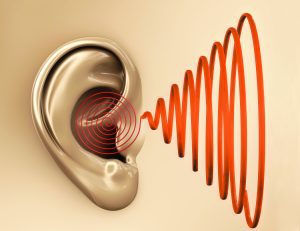Understanding the Problem
Tinnitus, commonly known as “ear ringing,” can be an incredibly frustrating condition to deal with. For many individuals, it’s not just a temporary annoyance but a persistent issue that seems to worsen over time. So, why does this happen?
Causes of Worsening Tinnitus
Hearing Loss and Age-related Degeneration
As we age, our hearing naturally declines due to a variety of factors, including exposure to loud noises, genetics, and overall health. This age-related degeneration can exacerbate tinnitus symptoms, making the ringing more pronounced and persistent.
Exposure to Loud Noise
Prolonged exposure to loud noises can damage the delicate hair cells in the inner ear, leading to hearing loss and worsening tinnitus. This damage can occur gradually over time, especially for individuals who work in noisy environments or frequently attend loud events without adequate ear protection.
Stress and Anxiety
Stress and anxiety have been linked to tinnitus, as they can exacerbate existing symptoms and make them feel more intense. Additionally, the constant worry and frustration associated with tinnitus can contribute to elevated stress levels, creating a vicious cycle that further worsens the condition.
Underlying Health Conditions
Certain underlying health conditions, such as high blood pressure, cardiovascular disease, and temporomandibular joint (TMJ) disorders, can contribute to worsening tinnitus. It’s essential to address these underlying issues to effectively manage tinnitus symptoms.

Finding Relief
Seek Professional Evaluation
If you’re experiencing worsening tinnitus, it’s crucial to seek evaluation from a qualified healthcare professional, such as an otolaryngologist or audiologist. They can help determine the underlying cause of your tinnitus and recommend appropriate treatment options.
Manage Stress and Anxiety
Practicing stress-reducing techniques, such as mindfulness meditation, deep breathing exercises, or yoga, can help alleviate tinnitus symptoms by reducing overall stress levels. Additionally, therapy or counseling may be beneficial for addressing underlying anxiety or depression. Explore more About (Ankle Sprain)
Protect Your Hearing
To prevent further damage to your hearing and worsening tinnitus, it’s essential to protect your ears from loud noises. Wear earplugs or earmuffs in noisy environments and limit exposure to excessively loud sounds whenever possible.

Explore Treatment Options
There are various treatment options available for managing tinnitus, including sound therapy, cognitive behavioral therapy (CBT), and medication. Your healthcare provider can help you explore these options and determine which ones may be most effective for your specific situation.
Treatment Options for Tinnitus
| Treatment Option | Description | Pros | Cons |
|---|---|---|---|
| Sound Therapy | Uses external noises to mask or distract from the tinnitus sound. | Non-invasive; can be customized. | Effectiveness varies; may not work for all. |
| Cognitive Behavioral Therapy (CBT) | Focuses on changing thought patterns and behaviors related to tinnitus perception. | Addresses psychological aspects. | Requires time and commitment. |
| Medication | Certain medications may help alleviate tinnitus symptoms, such as antidepressants or anti-anxiety drugs. | Can provide relief for some individuals. | Potential side effects; not suitable for everyone. |
Conclusion
Worsening tinnitus can be a frustrating and distressing experience, but it’s essential to remember that you’re not alone, and there are steps you can take to find relief. By understanding the potential causes of worsening tinnitus and exploring appropriate treatment options, you can regain control over your symptoms and improve your quality of life.












